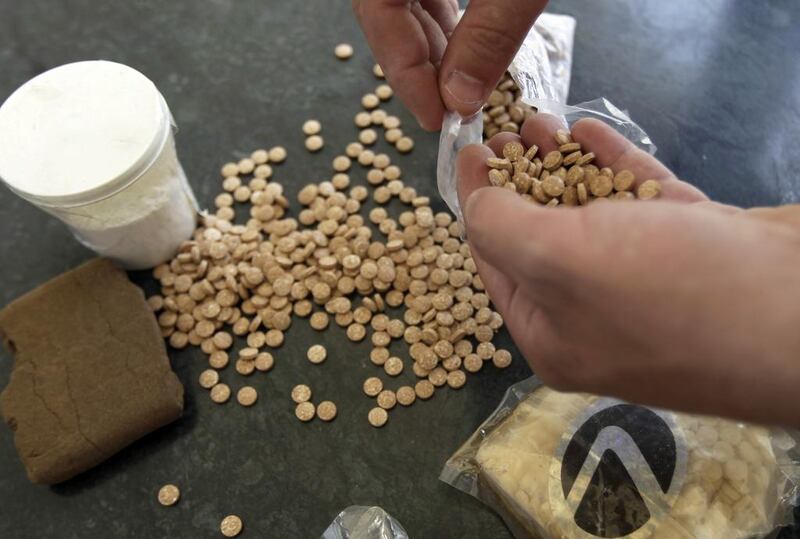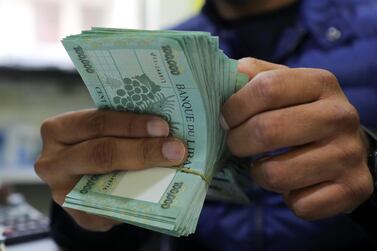Lebanese and Saudi authorities teamed up to intercept a large shipment of Captagon pills at Beirut port.
The illicit drug is often associated with militant group Hezbollah and its ally, the Syrian regime.
Lebanese Customs said it last week seized "a large amount of Captagon pills, professionally hidden inside the spare parts of bulldozers meant for Saudi Arabia".
Lebanon has, for decades, struggled to contain the production of illicit drugs, such as cannabis grown in the impoverished Bekaa Valley, a Hezbollah stronghold that borders Syria.
The Iran-backed group and the Syrian government, both sanctioned by the US, are believed to profit from the sale and production of illegal drugs.
Local media said Customs seized about one million of Captagon pills in the Lebanese capital on Wednesday.
A Lebanese Customs official told The National that the exact number of pills was yet to be confirmed.
The seizure took place last week but was only made public on Wednesday.
In the years since the Syrian civil war began, the shipment and production of Captagon, a type of illegal amphetamine, has flourished on both sides of the border.
Lebanese authorities routinely confiscate the pills and close down factories.
Last July, Italian police seized 84 million pills worth $1.1 billion.
The record haul was first thought to have belonged to ISIS, but Italian authorities later found they came from the port of Latakia, in Syria.
Security forces in Lebanon caught shipments of illicit drugs in the past few months, including one attempt in February to smuggle 27 kilograms of hashish to the Gulf in traditional Lebanese ovens.
Last December, the army shut down a Captagon factory in Brital, a town in the Bekaa Valley, and seized piles of the illegal drug.








